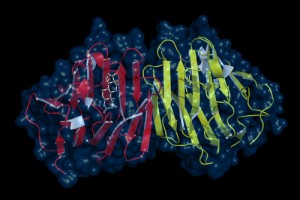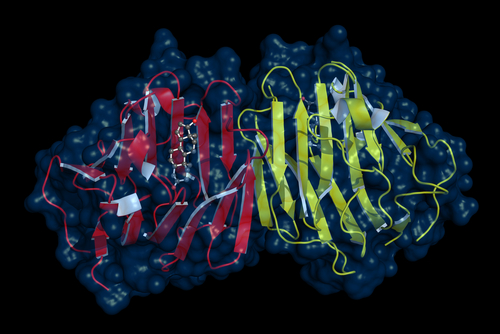 Maryland-based OncoPlex Diagnostics, a CAP-accredited, CLIA-certified laboratory that offers a novel solution for solubilizing tumor cell proteins taken from FFPE tissue and offering samples with absolute quantitation measures of unique peptides, recently announced that it has expanded its Breast Cancer Proteomic Panel by developing and adding a quantitative androgen receptor (AR) assay. With the addition of the AR, OncoPlex claims that their Diagnostics Breast Panel can now simultaneously measure several clinically relevant tumor proteins through the use of mass spectrometry in order to provide oncologists with the data they need to make the best therapy selection decisions.
Maryland-based OncoPlex Diagnostics, a CAP-accredited, CLIA-certified laboratory that offers a novel solution for solubilizing tumor cell proteins taken from FFPE tissue and offering samples with absolute quantitation measures of unique peptides, recently announced that it has expanded its Breast Cancer Proteomic Panel by developing and adding a quantitative androgen receptor (AR) assay. With the addition of the AR, OncoPlex claims that their Diagnostics Breast Panel can now simultaneously measure several clinically relevant tumor proteins through the use of mass spectrometry in order to provide oncologists with the data they need to make the best therapy selection decisions.
The newly expanded Breast Cancer Proteomic Panel was recently presented at the 13th Annual International Future of Breast Cancer Meeting, which was held in Huntington Beach, CA on July 19. Dr. April Speed, a Breast Surgical Oncologist from Atlanta, Georgia, specifically noted the inclusion of AR as an effective biomarker as part of the company’s multi-protein quantitation panel, along with HER2, HER3, EGFR, MET, IGF1R, ROS1, and PD-L1. In addition to these biomarkers, the Panel also includes the chemotherapy guidance markers hENT1, FR-alpha, RRM1, TOPO1, SPARC, and TOPO2A. These biomarkers, according to OncoPlex, can be included in assays generated from only two sections of tissue.
The company notes that the addition of the AR biomarker is significant due to the fact that AR is expressed in 75% of breast cancer patients, which includes 10-20% patients with triple negative breast cancer (TNBC) as well. This last statistic is particularly significant, since in the past, women who have been diagnosed with TNBC have been faced with limited options when it comes to treatments for their disease when based chiefly on guideline-driven algorithms. However, because AR positive patients with TNBC constitute a specific subtype of breast cancer, new treatment options based on androgen receptor inhibitors may be on the horizon.
Currently, there are FDA approved androgen receptor inhibitors on the market to treat prostate cancer, and clinical trials are currently underway to test these therapies for breast cancer. “Recent data are emerging to support androgen receptor as a drug target in breast cancer today,” stated Dr. Speed, referring to data from Dr. Joyce O’Shaughnessy’s group presented at the 2013 San Antonio Breast Cancer Symposium.

